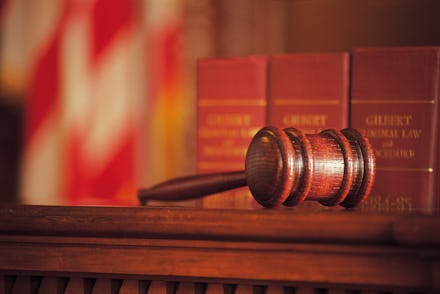How I Respond to the Court That Just Struck Down a Historic Cyberbullying Law

Coauthored with Matthew Rozsa.
On Tuesday, New York’s highest court struck down an Albany County law that would have made it a crime to “cyber-bully.” As a trailblazer in fighting for the rights of cyberbullying victims, you might think that I’d oppose the court’s decision. Unfortunately, the judicial system did what was necessary – overturn a badly-written law that did a poor job of addressing an all-too-real problem.
According to the recently nullified statute, county residents could have been prosecuted for “any act of communicating … by mechanical or electronic means” – from posting hostile statements on message boards and sharing embarrassing photographs to spreading private information and sending hate mail – “with the intent to harass, annoy, threaten, abuse, taunt, intimidate, torment, humiliate, or otherwise inflict significant emotional harm on another person.” As the court succinctly put it, “the First Amendment protects annoying and embarrassing speech” and “forbids the government from deciding whether protected speech qualifies as ‘legitimate.’”
I know a thing or two about being on the wrong side of cyberbullying. Five years ago a court ruled that Google had to reveal the identity of an anonymous blogger who had been spreading defamatory statements about me.
Notice the word “defamatory.” As in, the adjective of “defamation,” which Merriam-Webster’s Dictionary defines as “the act of saying false things in order to make people have a bad opinion of someone or something.”
This is important because insulting and/or hostile speech, though repugnant, is still constitutional. It is only when someone can be proved to have lied about another person for the purpose of harming them that they are no longer protected by the First Amendment.
The authors of the Albany County law may have intended to merely criminalize defamatory speech online, but if that was their goal, they failed miserably at accomplishing it. The statute as written is so loosely worded that it could encompass virtually any kind of speech that is intended to upset another party. Its authors forgot the lesson that Thomas Jefferson taught through example: After being elected president in 1800, he repealed the Alien and Sedition Act, which had been passed by his predecessor John Adams as a way of stifling political speech he found abusive. Even though this same law could have silenced Jefferson’s detractors as it had for Adams, he realized that “error of opinion may be tolerated where reason is left free to combat it.”
While this particular law needed to be struck down, however, it was still a step in the right direction. Because my cyberbully used defamatory language, her identity was revealed and any claims she made that were libelous claims were forever taken down. That may have protected me, but there are plenty of other victims of cyberbullying who remain helpless before the law. Hopefully a new law will eventually be passed that will protect victims of both cyberbullying and defamation, while remembering to abide by the Constitution.